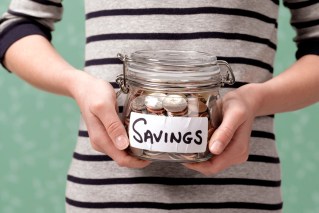How to handle your retirement in the midst of the coronavirus market scare


The coronavirus outbreak has already eroded retiree savings. Photo: Getty
Sharemarkets have lost 22.7 per cent since the market peaked several weeks ago and the average balanced superannuation fund has dropped 6.8 per cent.
The government has promised $2.4 billion in health spending and a $17.6 billion stimulus package.
Lots of people are very worried.
For anyone with a super account or shares, there’s lots to think about.
But, if you are planning to retire soon, the prospect of what to do with your finances can be downright terrifying.
“If you come to this from the perspective of someone going to retire, it is going to be a massive shock,” said Paul Versteege, policy co-ordinator with the Combined Pensioners and Superannuants Association.
“When you worked, you had a strong cash flow … but when you retire, cash flow is not assured any more and your income stream will have to come from superannuation [and/or the pension],” said Paul Versteege, policy coordinator with the Combined Pensioners and Superannuants Association.
Although these are scary times the worst thing you can do is panic.
“We take a balanced view,” said Michael Abrahamsson, a certified financial planner with Flinders Wealth.
“We see asset prices falling 20 per cent, but they are back where they were a year ago.
“If your house or business fell 30 per cent in value but was earning the same money, would you sell? No.
“The worst thing you could do would be to sell out.”
That is investment 101 and it is important to understand not to lose your head and bolt in a slump because you are locked out of profits.
As the above chart shows, superannuation balanced funds have recovered from down periods, rewarding those who stay onboard.
People notice days like Thursday when the market lost 7.4 per cent. But there are also strong recovery days when you have to be there as an investor.
“Research shows that if over 20 years you miss being in the market on 10 days when the market took big leaps, you would miss out on half of your gains,” said Corey Wastle, a certified financial planner with Verse Wealth.
Holding on is important, but if you are coming up to retirement, “there are more difficult choices,” Mr Abrahamsson said.
That’s because retiring means you start cashing in your super.
And even if you only take the minimum 4 per cent of its value as a pension, you are eroding values by selling for a low price.
Consider delaying lump sums and working for longer
And therein lies the major problem – because retirement for many people is the time to take out a lump sum to pay off the mortgage, buy a caravan, or go on that holiday they’ve been putting off for years.
Although you “can’t always pick the market,” Mr Wastle said the recent market plunge means you might need to reconsider when you take that lump sum.
“If you’ve got a $200,000 mortgage that you want to pay off in retirement, you might do it progressively over a period of time,” he said.
Another possibility is to keep the cash coming in.
“If you can work for a bit longer, that would be good,” Mr Abrahamsson said.
However, retirement decisions come down to the individual’s particular situation and “lifestyle issues can be major influences”.
Retirement and the current market situation are also good opportunities to take stock.
“Take financial planning seriously and don’t try to do it yourself,” Mr Versteege said.
Check your risk
“Revisit asset allocations and see if you have too much or too little exposure to shares and growth assets,” Mr Abrahamsson said.
If you determine you have too much exposure to growth assets, don’t be afraid of crystallising losses by selling and moving into more conservative assets.
“They can always fall further. During the GFC the market lost 50 per cent,” Mr Abrahamsson said.
The coronavirus crisis is “very concerning and is different to other crises of the last 20 years,” said Stephen Anthony, chief economist with Industry Super Australia.
“There is a real labour market shock where people can’t work.
“Australia’s issue is high overall debt, with household debt being our point of vulnerability,” Dr Anthony said.
“If the government has to shut down large organisations with large payrolls for periods of time the economic effect would be profound.”
Retirees have not yet panicked untowardly.
“We aren’t getting the panicked calls we were getting during the GFC,” Mr Versteege said.
“To date the groups hit really hard have not been those with market exposures, it has been those stuck in term deposits where interest rates are so low.”








